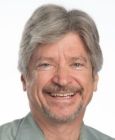Happiness
Faculty Happiness in the Pandemic: Lessons from Physicians
What can professors do to move beyond burnout toward fulfillment?
Posted December 11, 2021 Reviewed by Tyler Woods
Key points
- Physicians are facing greater stress in the face of the pandemic.
- What works for physicians may work for faculty members.
- Faculty members can take steps to address administrative burdens, work-life balance, and our workplace culture.
A couple months ago I wrote about faculty burnout during the pandemic. In my continuing quest to find ways to avoid burnout and (as the positive psychology folks would remind us) achieve fulfillment, wellness, and happiness, I ran across a wonderful piece by Allison Riley called Physician happiness: 4 strategies for improving physician well-being, published by CompHealth, a healthcare staffing company. I saw the title and thought, “If there are strategies that work for physicians, can they work for me and other professors as well?”
I’m certainly not saying that professors face the same types or degree of stressors as do physicians. All I’m saying is that we might be able to learn something from these findings. So let me look at Riley’s recommendations and share an example or two about how I (could) implement them—and invite you to see how they may work for you.
Riley begins by documenting the toll the pandemic has taken on physician well-being. The survey data she summarizes, for example, shows that 20 percent of physicians report being “very happy” outside of work these days, compared with 43 percent before the pandemic. She cites a study on the JAMA Network that found “that 1 in 5 clinicians were considering leaving medicine as a result of the pandemic.” And the number one factor in physician burnout?: “Too many bureaucratic tasks.” Other factors include spending too much time at work and lack of autonomy.
Riley’s first strategy is to “reduce administrative burden.” Great idea. But this seems totally out of our hands, right? It would be the administration that would need to reduce burdens. In fact, all Riley’s strategies are aimed at organizations rather than, or in addition to, individuals. But what might I do, as an individual, to reduce this burden? One possibility: Reframe the burden as an opportunity.
My most recent administrative burden was a post-tenure review. Every five years they make us senior faculty put together a dossier—kind of like we did for tenure—with listings of our publications, other research activities, course evaluations, other evidence of teaching effectiveness, and service we’ve done for the university and our profession. They seem only to be looking for “dead wood,” for those professors who’ve essentially retired after tenure but didn’t tell anybody. But the rest of us have to jump through these hoops.
For lots of us, then, post-tenure review is an administrative burden. But we have some choice about how we view the situation as we’re hunting down old course evaluations. Instead of cursing the administration and our former dead wood colleagues who created the need for this, we could take the opportunity to reflect on where we’ve been for the last few years and where we want to be. I frequently ask myself this question, “If they had told me on my graduation day that this is where I’d be at this point in my career, would I have signed up?” Whatever the answer is, it sure beats cursing.
Riley’s second strategy: “Create conditions for better work/life balance.” According to survey results cited by Riley, physicians and I share some important techniques, including simple downtime, time with friends/family, exercise, and naps. One of my favorite activities, endorsed by 21 percent of physicians, is mindfulness meditation and related activities. Pre-pandemic, I’d use my commute time on the bus for meditation—although I frequently took some time for acrostic puzzles, people-watching, and just plain daydreaming. Since I’ve been working from home I’ve enjoyed the extra hours, but I need to be more careful about allotting some of that time to those same relaxation techniques.
Riley's third strategy: “Elevate respect and recognition at work.” My university has done its part. The administration has been very good about giving faculty and staff some pats on the back (and a few bucks!) for the hard work we’ve done during the pandemic. I can pay this forward by showing my gratitude, admiration, and respect to the other members of my academic family, like colleagues, staff, and students. This leads directly into the fourth strategy:
“Enhance workplace culture and foster friendships.” What can I do to facilitate the culture of my workplace? Lots! First, I can recognize how fortunate I am to have a job with as much autonomy, respect, and security.
No less an authority than Stephen Sondheim (and others) have said that teaching is a sacred activity. After I finish feeling sorry for myself as a senior faculty member (which happens if I daydream too much), I realize what a privilege teaching is and how much worse other faculty have it (let alone physicians). I also think of my students, many of whom are first-generation college students and all of whom are facing choices and situations that few of us have ever had to deal with. I have the opportunity, and the obligation, to treat colleagues and students with grace, to communicate on a regular basis that they belong here, and to stay in touch with the small and large parts of the job that are joyful.


